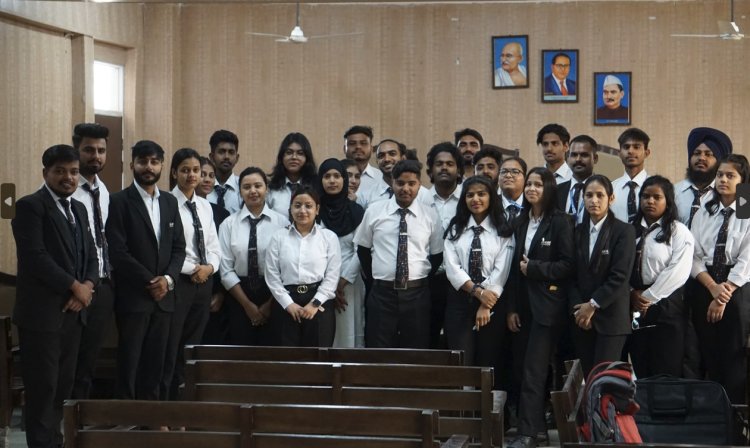Beyond the Classroom: Essential Skills for Aspiring Lawyers
Law school equips you with a robust understanding of legal principles and the intricacies of the legal system. But to truly thrive in the legal profession, a strong academic foundation needs to be complemented by a set of essential skills.
Share this Post to earn Money ( Upto ₹100 per 1000 Views )
Law school equips you with a robust understanding of legal principles and the intricacies of the legal system. But to truly thrive in the legal profession, a strong academic foundation needs to be complemented by a set of essential skills. These skills go beyond the classroom and play a crucial role in your success as a lawyer.
Here are some key skills every aspiring lawyer should cultivate:
1. Communication: Strong communication is paramount for lawyers. You need to be able to clearly and concisely articulate complex legal concepts to clients, judges, and colleagues. This includes:
- Written Communication: Legal documents, briefs, and emails need to be well-structured, grammatically correct, and persuasive.
- Oral Communication: You should be able to articulate arguments effectively in court or present ideas confidently during meetings and negotiations.
- Active Listening: Being a good listener allows you to understand client needs, identify key details in witness testimonies, and effectively navigate discussions with opposing counsel.
2. Research and Analytical Skills: Lawyers spend a significant amount of time researching legal issues and analyzing vast amounts of information. This requires:
- Understanding Legal Precedents: Being able to research and interpret case law is essential for building strong arguments and applying legal principles effectively.
- Attention to Detail: Meticulous attention to detail is crucial for identifying relevant facts, spotting inconsistencies, and ensuring legal documents are accurate and complete.
- Critical Thinking: Lawyers need to be able to analyze legal information critically, identify weaknesses in opposing arguments, and develop sound legal strategies.
3. Problem-Solving and Decision-Making: The legal field is inherently complex, and lawyers often need to solve intricate problems and make critical decisions under pressure. Developing the ability to:
- Think Creatively: Explore alternative solutions, identify innovative approaches to legal challenges, and think outside the box.
- Negotiation Skills: Negotiating settlements, contracts, and other legal agreements is a fundamental skill for many lawyers. Hone your ability to communicate offers effectively, strategically navigate compromises, and achieve favorable outcomes for your clients.
- Client Management: Building strong relationships with clients and effectively managing their expectations is crucial.
4. Time Management and Organizational Skills: Juggling multiple deadlines, managing caseloads, and meeting client needs requires exceptional organizational skills. Learn to:
- Prioritize Tasks: Effectively manage your time by prioritizing tasks effectively, meeting deadlines, and creating a systematic workflow.
- Stay Organized: Develop a system for organizing case files, managing legal documents electronically, and staying on top of deadlines.
5. Teamwork and Collaboration: While the legal profession often portrays lawyers as solitary figures, working collaboratively with colleagues and clients is essential. Effective teamwork involves:
- Building Relationships: Foster positive working relationships with colleagues, legal professionals from different disciplines, and court personnel.
- Delegation Skills: Learn to delegate tasks appropriately and manage diverse teams effectively when necessary.
6. Technology Proficiency: Technology plays a vital role in modern legal practice. Developing proficiency in:
- Legal Research Databases: Navigating online legal databases and research tools is crucial for efficient legal research.
- Legal Software: Mastering legal software for document management, case preparation, and timekeeping will save time and enhance your efficiency.
- Communication Tools: Effectively utilizing email, online collaboration tools, and video conferencing allows for seamless communication with clients and colleagues regardless of location.
Developing these essential skills alongside your academic studies will help you stand out as a well-rounded and effective legal professional. Libra College of Law, one of the top law colleges in Uttarakhand understands the importance of these skills and goes beyond just textbook knowledge. We offer various opportunitiesand programs like LLM courses, LLB courses, BA.LLB courses to hone these skills through moot court exercises, client counseling simulations, and legal writing workshops. Our vibrant campus life also fosters teamwork and collaboration, preparing you for the realities of the legal profession.









